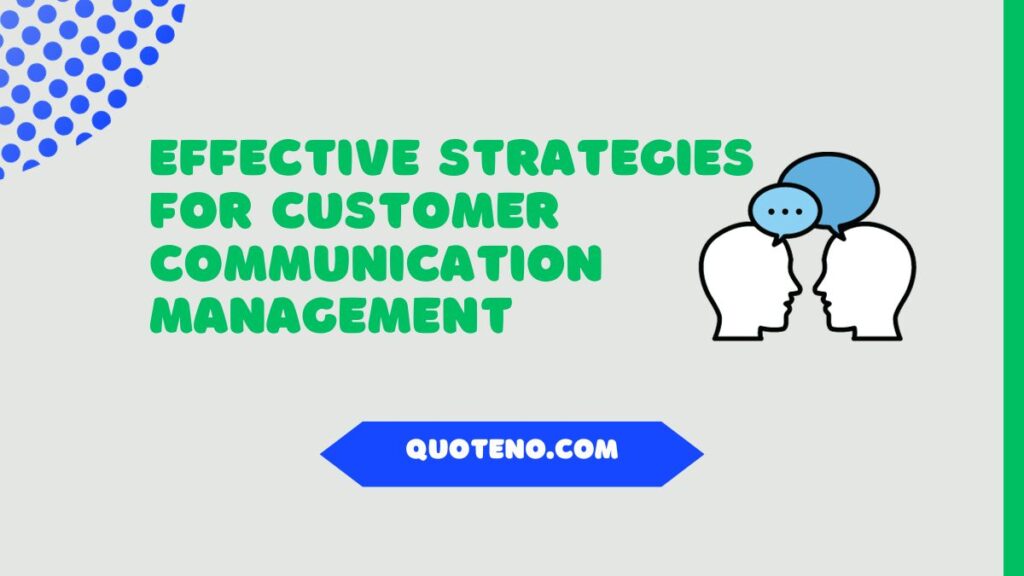Effective communication strategies can help businesses keep their customers happy and engaged. These strategies include sharing helpful information, providing valuable customer service, and communicating with customers in a way that is convenient for them.
A strong communication strategy should also include a feedback loop to collect and analyze customer feedback. This helps identify any areas where improvements can be made.
Table of Contents
Create a unified brand voice
Customer communication management (CCM) involves improving all customer interactions through digital and traditional channels. This includes social media platforms, email, web pages, and even phone calls with a representative. Creating a unified brand voice for all these channels can be challenging, but it is essential for ensuring consistency in messaging and tone.
Personalized communication makes your audience feel special and valued, which creates a strong bond between them and your brand. It provides a sense of trust, fostering loyalty over time.
Developing guidelines for your team to follow is essential to make your brand voice unified. It should include everything from the overall tone of your voice to specific words and phrases to avoid.
Create a consistent customer experience
To ensure consistent customer experience, it’s important to have clear guidelines for your customer service representatives. For example, you can use a knowledge base to record standard responses for your team to reference. It helps them to provide better answers to customers, improve their experience, and increase customer satisfaction.
Customers want a seamless experience, whether talking to your representatives via email, social media, or live chat. This is why omnichannel communication should be a key component of customer communication management strategy.
A strong internal communication plan ensures that all departments can rely on each other for support and collaboration, creating a positive customer experience. Implementing a unified customer communication strategy, tracking key metrics, and continuously improving are ways to achieve this.
Focus on customer satisfaction
Customer satisfaction is key to fostering long-term loyalty toward your business. That’s why it is important to create a communication strategy that focuses on delighting customers at every step of their journey.
It can be accomplished through implementing clear, accessible routes for customers to voice their concerns with human representatives. Ensuring any issues are resolved promptly and efficiently is also crucial.
Personalization is another critical element of customer communication management. Customers respond positively to messages that feel they’re meant just for them. To deliver personalized messages, consider conducting market research to learn about your audience’s demographic and preferences. Additionally, you can use tools to gather contact information and conduct surveys that ask for feedback. Using this data to customize your communication strategies will help you build strong customer relationships.
Invest in technology
CCM software helps streamline communication across marketing, sales, and customer support. It also increases operational efficiency by reducing manual labor and minimizing errors. Additionally, it can help personalize communications based on individual customer data and preferences. For example, a credit card company can use a CCM tool to automate monthly statements with relevant offers based on customers’ spending habits.
Customer communication management is crucial for optimizing client experiences and creating delightful interactions. To do so, businesses should invest in specialized technologies. It includes implementing tools designed to localize conversations into one centralized location, as well as knowledge-sharing platforms that break down siloes among business departments. It is important to provide a seamless customer experience across all channels.
Create a culture of communication
Whether live interactions like phone or chat or digital communications like email and documents, customer communication management (CCM) encompasses the tools, channels, and strategies businesses use to connect with customers, ultimately, effective communication strategies encourage marketing, sales, and service teams to work collaboratively across departments to deliver a seamless experience.
Proper CCM also helps ensure that insights from marketing and sales activities inform support interaction, giving every customer a consistently positive experience. And when the whole team is committed to communicating with customers effectively, they can create a culture that drives brand loyalty and a successful business.
- How to Buy a Home in Today’s Market - February 13, 2026
- Common Causes of Car Accidents and How to Avoid Them - February 13, 2026
- Innovative Strategies for Effective Event Staffing - February 12, 2026

